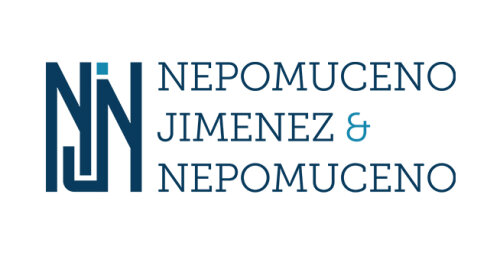Best Antitrust Lawyers in Angeles City
Share your needs with us, get contacted by law firms.
Free. Takes 2 min.
List of the best lawyers in Angeles City, Philippines
About Antitrust Law in Angeles City, Philippines
Antitrust laws in Angeles City, Philippines, aim to promote fair competition and prevent monopolistic practices that can harm consumers and businesses. These laws are designed to ensure that markets operate efficiently, prevent abuses of dominance, and promote consumer welfare. In the Philippines, antitrust regulations are primarily guided by the Philippine Competition Act, which is enforced by the Philippine Competition Commission (PCC). Angeles City, being a thriving economic hub, is subject to these national laws while also considering regional market dynamics that may impact competition within its local businesses.
Why You May Need a Lawyer
Engaging a lawyer may be important in several situations concerning antitrust issues:
- If you suspect unfair competitive practices, such as price-fixing, bid-rigging, or abuse of dominant market position by a competitor.
- If your business plans to engage in a merger or acquisition that might have significant implications on market competition and requires compliance with antitrust laws.
- When facing investigations or charges from the Philippine Competition Commission or other regulatory bodies regarding potential antitrust violations.
- If you are a player in a heavily regulated industry such as telecommunications, transport, or retail, where compliance with antitrust regulations is crucial.
- To better understand and navigate complex antitrust regulatory requirements when entering new markets or introducing innovative products.
Local Laws Overview
In Angeles City, like the rest of the Philippines, antitrust legislation primarily revolves around the Philippine Competition Act of 2015. Key aspects include:
- Prohibited Practices: This includes anti-competitive agreements, abuse of dominant position, and anti-competitive mergers and acquisitions.
- Enforcement Authority: The Philippine Competition Commission is tasked with investigating and enforcing antitrust laws.
- Sanctions and Penalties: Companies found violating antitrust laws may face penalties, including hefty fines and orders to cease anti-competitive practices.
- Legal Proceedings: Cases typically start with an investigation, followed by administrative or judicial proceedings if necessary.
Frequently Asked Questions
What is the role of the Philippine Competition Commission?
The Philippine Competition Commission (PCC) is the authority responsible for enforcing antitrust-related laws. It investigates potential antitrust violations, evaluates mergers and acquisitions for their impact on competition, and enforces compliance with regulatory standards to maintain market health.
What is considered as an anti-competitive agreement?
Anti-competitive agreements include any contract or collusion between competitors that restricts or distorts competition, such as price-fixing, market allocation, or limiting production.
Could a merger be blocked under antitrust regulations?
Yes, if a merger significantly reduces competition or creates a dominant market position that could harm consumers and competitors, the PCC may block or impose conditions on the merger to protect market competition.
How can I report suspected antitrust violations?
Suspected antitrust violations can be reported to the PCC through their official website or by contacting their office directly. Evidence of alleged violations and details on the impact on competition will be necessary to initiate an investigation.
Are there any exemptions to antitrust laws?
Certain industry-specific exemptions may apply under national policy or legislation, but these are typically limited and regulated. Consultation with a legal expert can provide clarity on potential exemptions relevant to specific cases.
What are potential penalties for violating antitrust laws?
The penalties for violating antitrust laws can include significant fines, cease and desist orders, nullification of contracts, and even imprisonment for individuals responsible for the violation.
How long do investigations typically last?
The duration of antitrust investigations in the Philippines can vary widely based on the complexity of the case but generally range from several months to a year.
What industries are most affected by antitrust regulations?
While all industries must adhere to antitrust laws, sectors like telecommunications, transportation, retail, and pharmaceuticals are heavily scrutinized due to their substantial market impact and historical regulatory challenges.
Do antitrust laws apply to small businesses?
Yes, antitrust laws apply to businesses of all sizes, but enforcement mechanisms and scrutiny may be more lenient for smaller entities unless they significantly impact competition in a given market.
What should I do if I receive a notice from the PCC?
If you receive a notice from the PCC, it's crucial to consult with an antitrust lawyer immediately. They can help you understand the notice, advise on compliance, and represent you in any necessary proceedings.
Additional Resources
For more information on antitrust issues, the following resources may be useful:
- Philippine Competition Commission: The central authority for antitrust enforcement.
- Department of Trade and Industry: Provides guidance on trade regulations and fair competition.
- Local Business Chambers: Can offer networking resources and guidance on compliance.
- Legal Firms Specializing in Antitrust and Compliance: Offer professional advice tailored to specific business needs.
Next Steps
If you require legal assistance with antitrust matters in Angeles City, the following steps will help guide your efforts:
- Identify the Issue: Clearly articulate your specific concerns or requirements related to antitrust laws.
- Consult a Lawyer: Seek advice from a legal expert specializing in antitrust to understand your rights and obligations.
- Gather Documentation: Collect all relevant documents and evidence that may pertain to your case or inquiry.
- Engage with Authorities: If necessary, cooperate with the PCC or other relevant bodies as advised by your legal counsel.
- Continual Compliance: Implement recommended strategies to ensure ongoing compliance with antitrust laws.
Lawzana helps you find the best lawyers and law firms in Angeles City through a curated and pre-screened list of qualified legal professionals. Our platform offers rankings and detailed profiles of attorneys and law firms, allowing you to compare based on practice areas, including Antitrust, experience, and client feedback.
Each profile includes a description of the firm's areas of practice, client reviews, team members and partners, year of establishment, spoken languages, office locations, contact information, social media presence, and any published articles or resources. Most firms on our platform speak English and are experienced in both local and international legal matters.
Get a quote from top-rated law firms in Angeles City, Philippines — quickly, securely, and without unnecessary hassle.
Disclaimer:
The information provided on this page is for general informational purposes only and does not constitute legal advice. While we strive to ensure the accuracy and relevance of the content, legal information may change over time, and interpretations of the law can vary. You should always consult with a qualified legal professional for advice specific to your situation.
We disclaim all liability for actions taken or not taken based on the content of this page. If you believe any information is incorrect or outdated, please contact us, and we will review and update it where appropriate.










